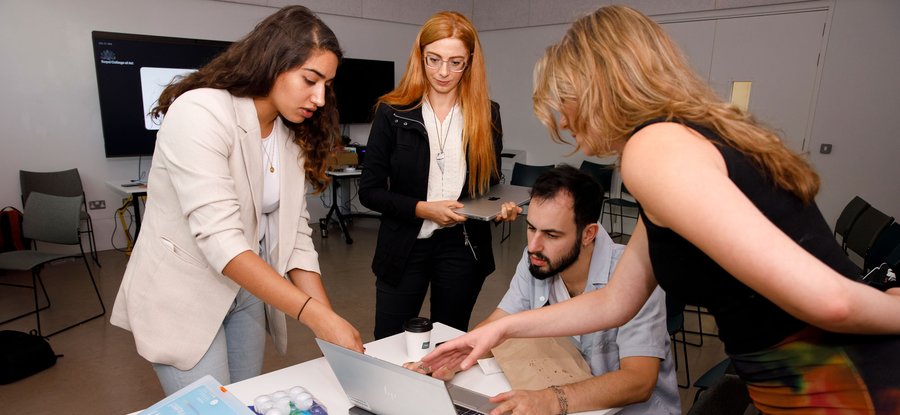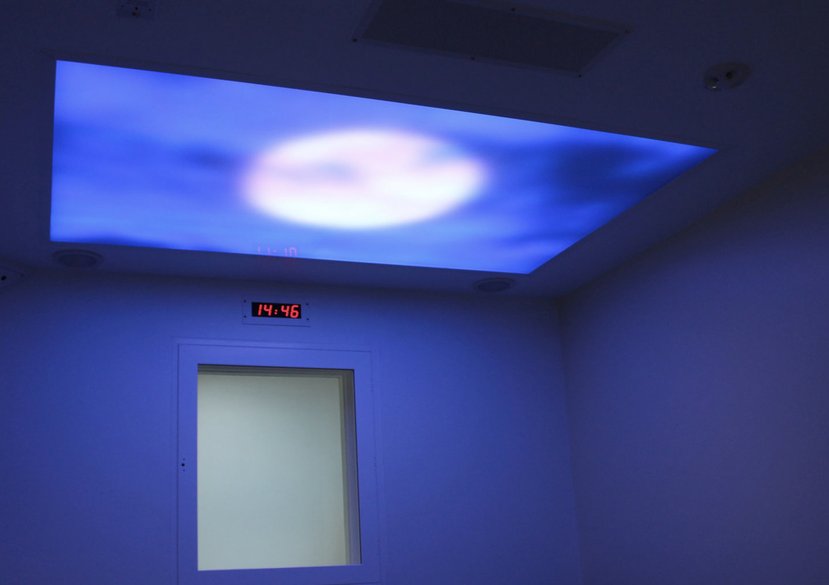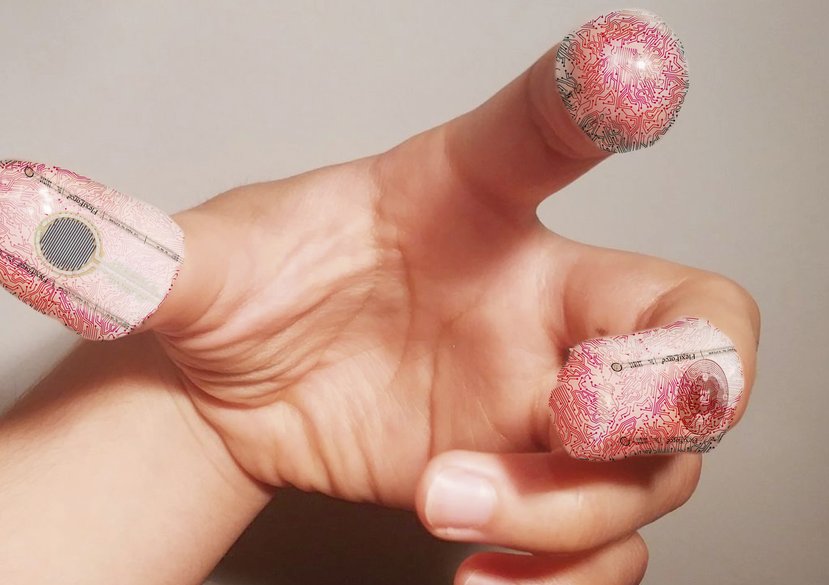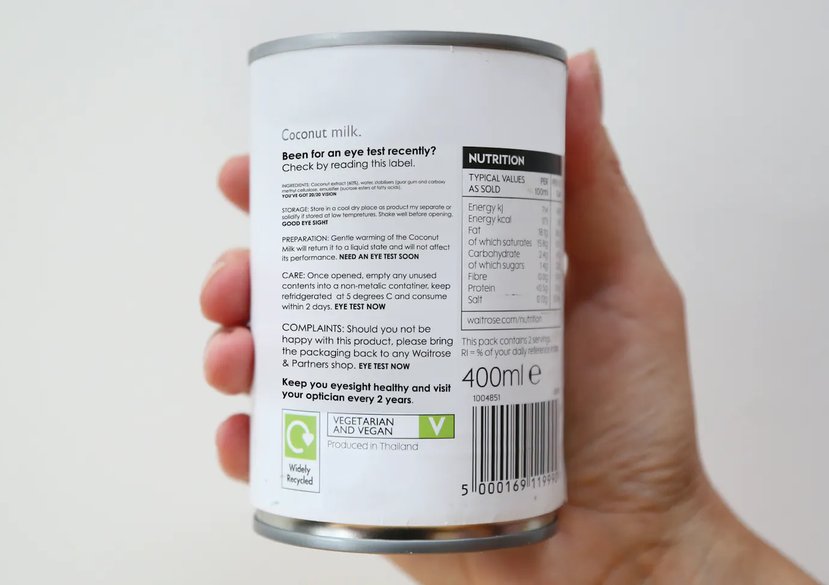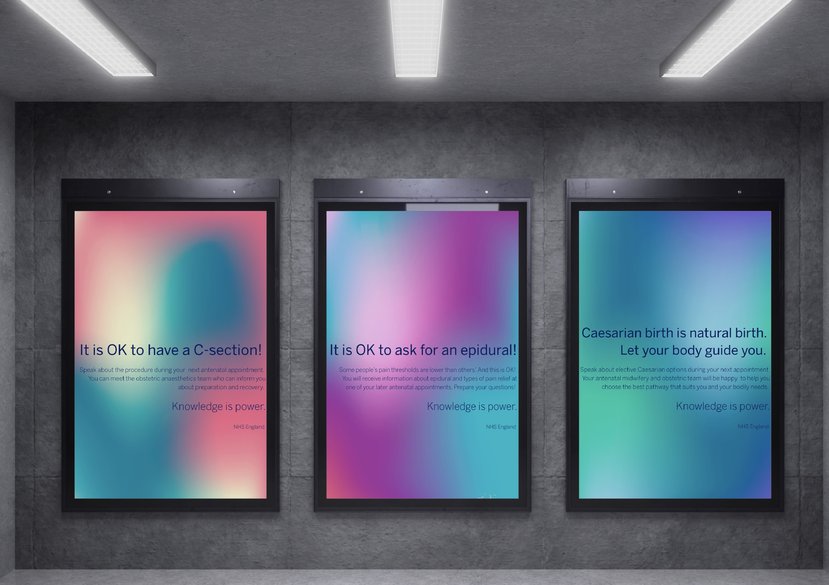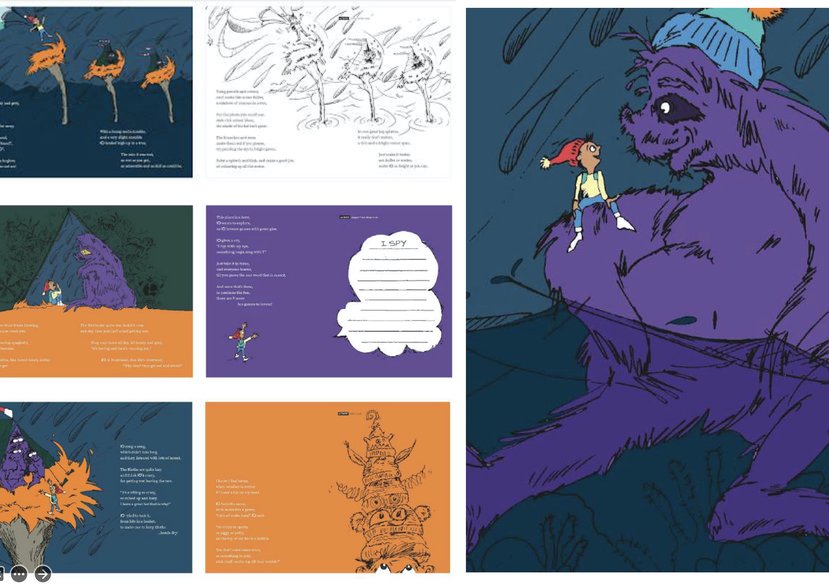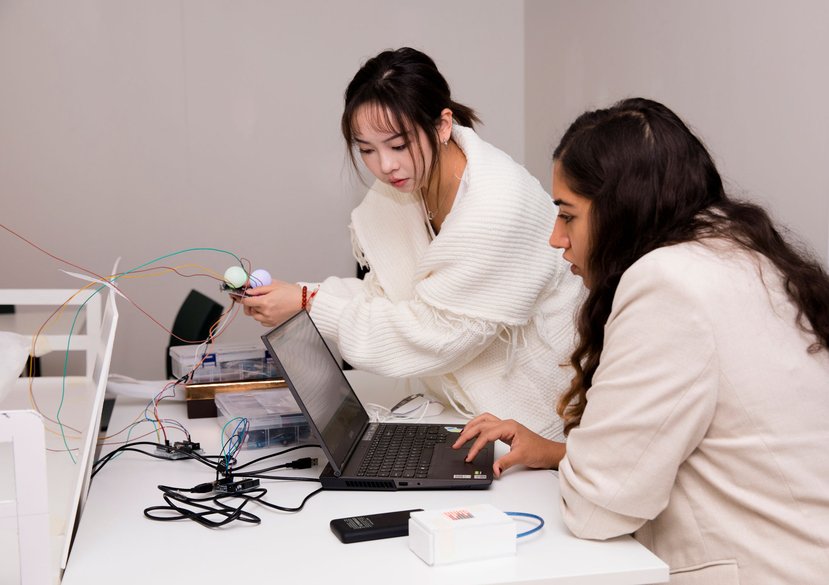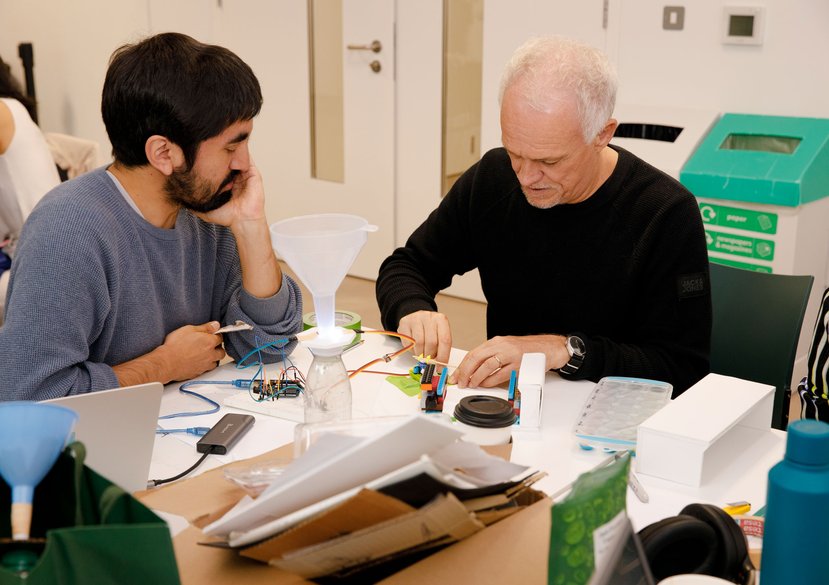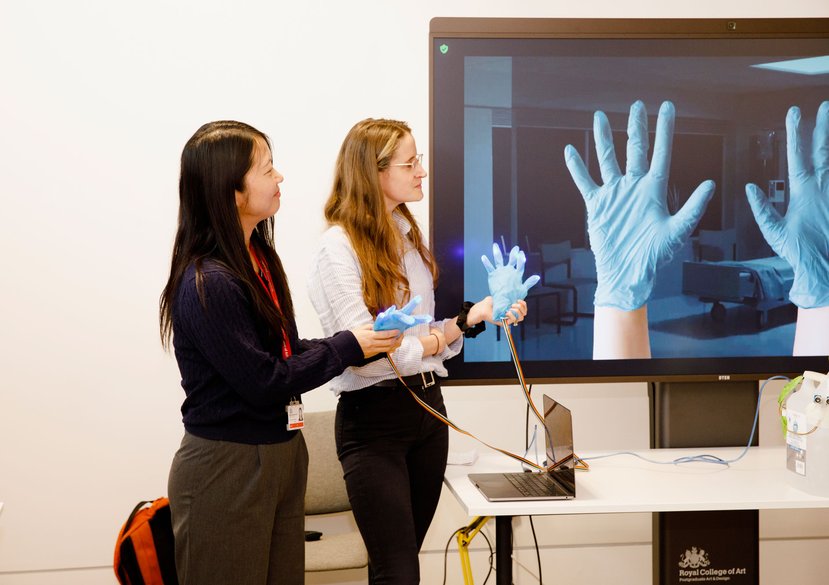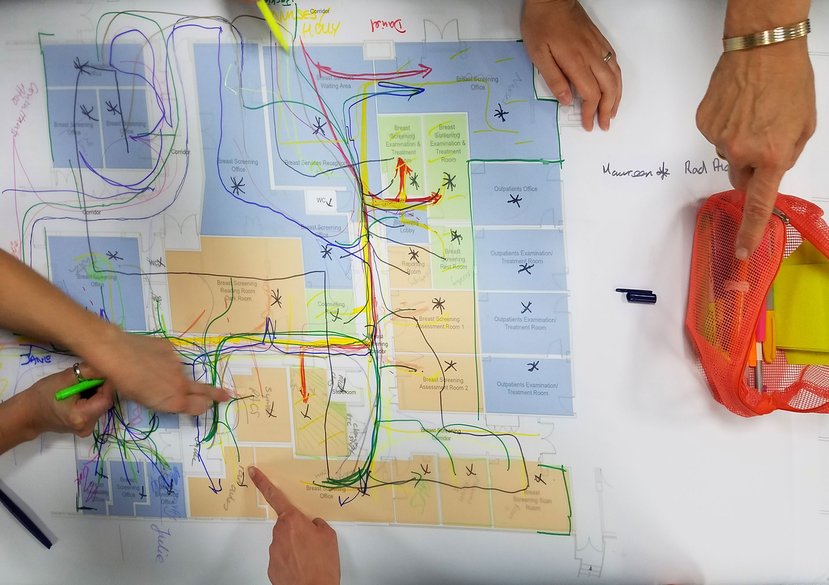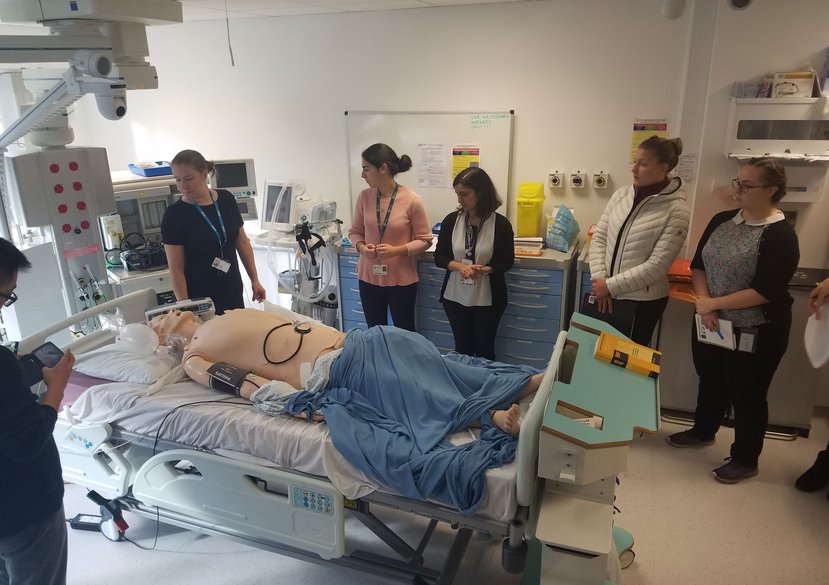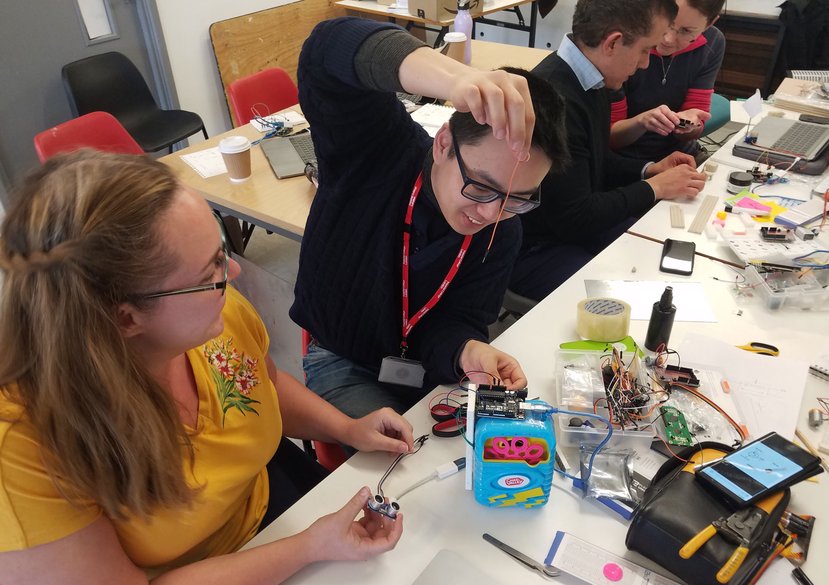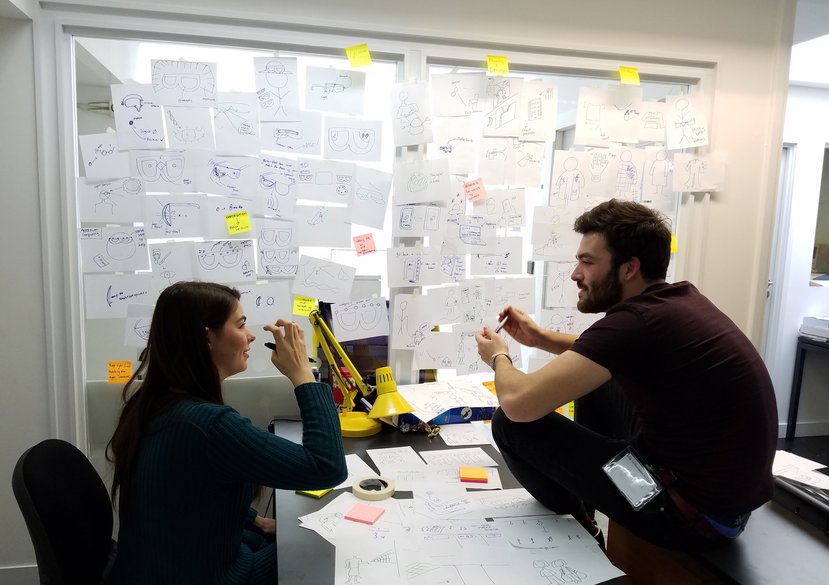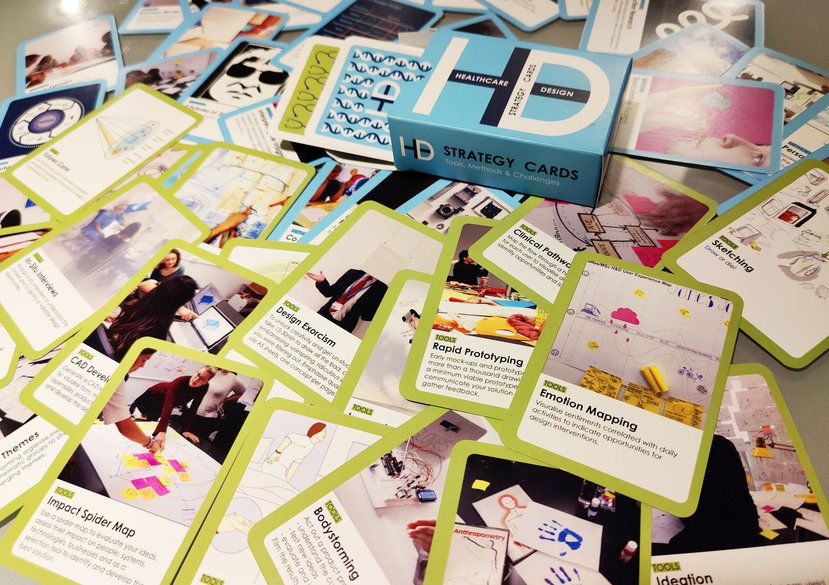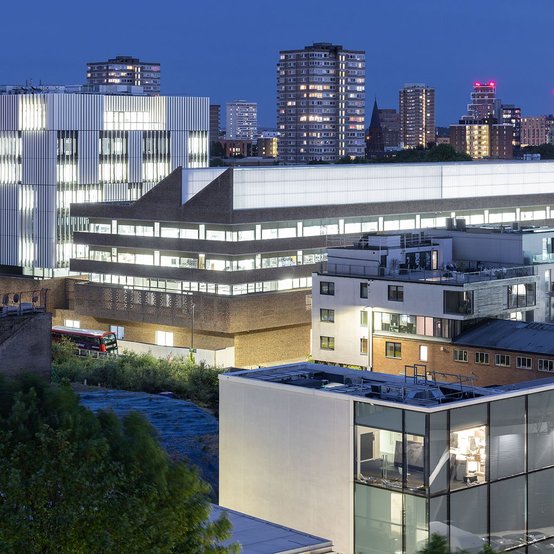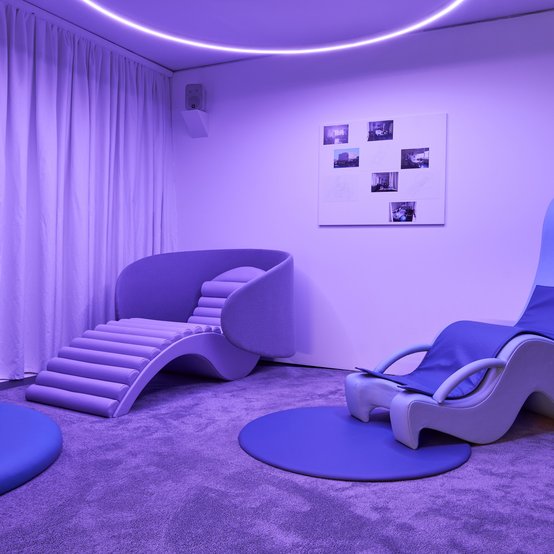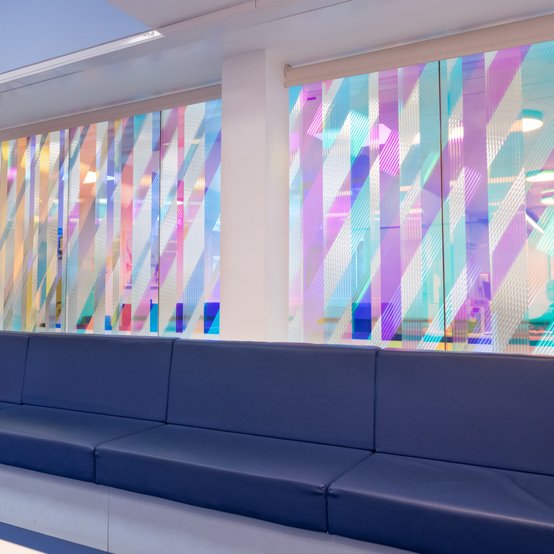
Overview
Clinical–design collaboration
Key details
- 180 credits
- 2 year programme
- Part-time study
Current location
- Kensington
Round 2 application deadline
- Applications closed. Please check back soon.
Healthcare & Design MRes is no longer accepting applications, and teaching of the current cohort will finish in the Summer term 2026.
This unique interdisciplinary programme draws on the complementary expertise from the RCA's School of Design and Helen Hamlyn Design Centre, and the healthcare expertise from Imperial College London’s medical faculty and the Helix Centre based at St Mary’s Hospital in Paddington London.
You'll develop an awareness of the role and value of design in solving healthcare challenges, as well as a multi-professional perspective on problem-solving and the importance of clinical/design collaboration. The programme uses a range of research techniques, tools and frameworks in the fields of design and innovation, and offers an environment in which to develop design-led skills to rapidly research, synthesise and prototype a solution to a healthcare challenge.
Healthcare & Design MRes is no longer accepting applications, and teaching of the current cohort will finish in the Summer term 2026.
Gallery
Staff
Facilities
The School of Design is based across our Battersea and Kensington sites.
View all facilitiesStudents have access to the College’s workshops, with traditional facilities for woodworking, metalworking, plastics and resins, including bookable bench spaces. Computer-driven subtractive milling equipment is available, as well as additive rapid prototyping.
Our alumni
Our alumni form an international network of creative individuals who have shaped and continue to shape the world. Click on each name to find out more.
Where will the RCA take you?- Tim Allen
- Philippa Batey
- Nuzi Barkatally
- Prakash Jayakumar
- Sidney Krandall
- Elisabeth Krenkler
- Stiliyana Minkovska
- Stephanie Pau
- Marina Root
- William Wang

More details on what you'll study.
Healthcare & Design MRes is no longer accepting applications, and teaching of the current cohort will finish in the Summer term 2026.
What you'll cover
First Year
In the first year, you embark on four taught modules: Design Led Innovation in Healthcare, Principals of Design and Innovation, Research Toolkit and a Helix Design Dash.
Teaching takes place in each module during one-week intensive sessions and includes interactive lectures, seminars, tutorials, case-based discussion, technology demonstrations and practical team-based workshop projects. You will have the opportunity to participate in a range of formative and summative individual and group-based activities.
Modules
- Design Led Innovation in Healthcare
- Principals of Design and Innovation
- Health Research Toolkit
- Helix Design Dash
Second year
In the second year, you take four further modules, including innovation, design for behaviour change and leadership.
Modules
5. Innovation
6. Designing for behaviour change
7. Health Business Toolkit
8. Leadership
Each module concludes with an assessable presentation and a piece of coursework.
Design research project
You will conduct a major personal design research project throughout the two years of study. The personal research project supervision is led by the RCA with support from expertise at Imperial College. You can undertake the research project in your workplace (with support from employers) or select a self-directed project theme under guidance from our staff. The major research project is assessed via a viva with design projects and a thesis.
Requirements
What you need to know before you apply
Healthcare & Design MRes is no longer accepting applications, and teaching of the current cohort will finish in the Summer term 2026.
Fees & funding
For this programme
Fees for new students
Fees for September 2025 entry on this programme are outlined below. From 2021 onward, EU students are classified as Overseas for tuition fee purposes.
Home
Overseas and EU
Deposit
New entrants to the College will be required to pay a non-refundable deposit in order to secure their place. This will be offset against the tuition fees for the first year of study.
Home
Overseas and EU
Progression discount
For alumni and students who have completed an RCA Graduate Diploma and progress onto an RCA Master's programme – MA, MA/MSc, MFA, MDes, MArch, MEd or MRes – within 10 years, a progression discount of £1,000 is available.
* Total cost is based on the assumption that the programme is completed in the timeframe stated in the programme details. Additional study time may incur additional charges.
Scholarships
Scholarships
The RCA scholarship programme is growing, with hundreds of financial awards planned for the 2025/6 academic year.
For more information and examples of financial awards offered in 2024/25, visit the Scholarships & awards webpage.
You must hold an offer to study on an RCA programme in order to make a scholarship application in Spring 2025. A selection of RCA merit scholarships will also be awarded with programme offers.
We strongly recommend that you apply for your programme as early as possible to stand the best chance of receiving a scholarship. You do not apply directly for individual awards; instead, you will be invited to apply once you have received an offer.
More information
Additional fees
In addition to your programme fees, please be aware that you may incur other additional costs associated with your study during your time at RCA. Additional costs can include purchases and services (without limitation): costs related to the purchase of books, paints, textiles, wood, metal, plastics and/or other materials in connection with your programme, services related to the use of printing and photocopying, lasercutting, 3D printing and CNC. Costs related to attending compulsory field trips, joining student and sport societies, and your Convocation (graduation) ceremony.
If you wish to find out more about what type of additional costs you may incur while studying on your programme, please contact the Head of your Programme to discuss or ask at an online or in person Open Day.
We provide the RCASHOP online, and at our Kensington and Battersea Campuses – this is open to students and staff of the Royal College of Art only to provide paid for materials to support your studies.
We also provide support to our students who require financial assistance whilst studying, including a dedicated Materials Fund.
External funding
There are many funding sources, with some students securing scholarships and others saving money from working. It is impossible to list all the potential funding sources; however, the following information could be useful.
Payments
Tuition fees are due on the first day of the academic year and students are sent an invoice prior to beginning their studies. Payments can be made in advance, on registration or in two instalments.
Ask a question
Get in touch if you’d like to find out more or have any questions.
[email protected]

